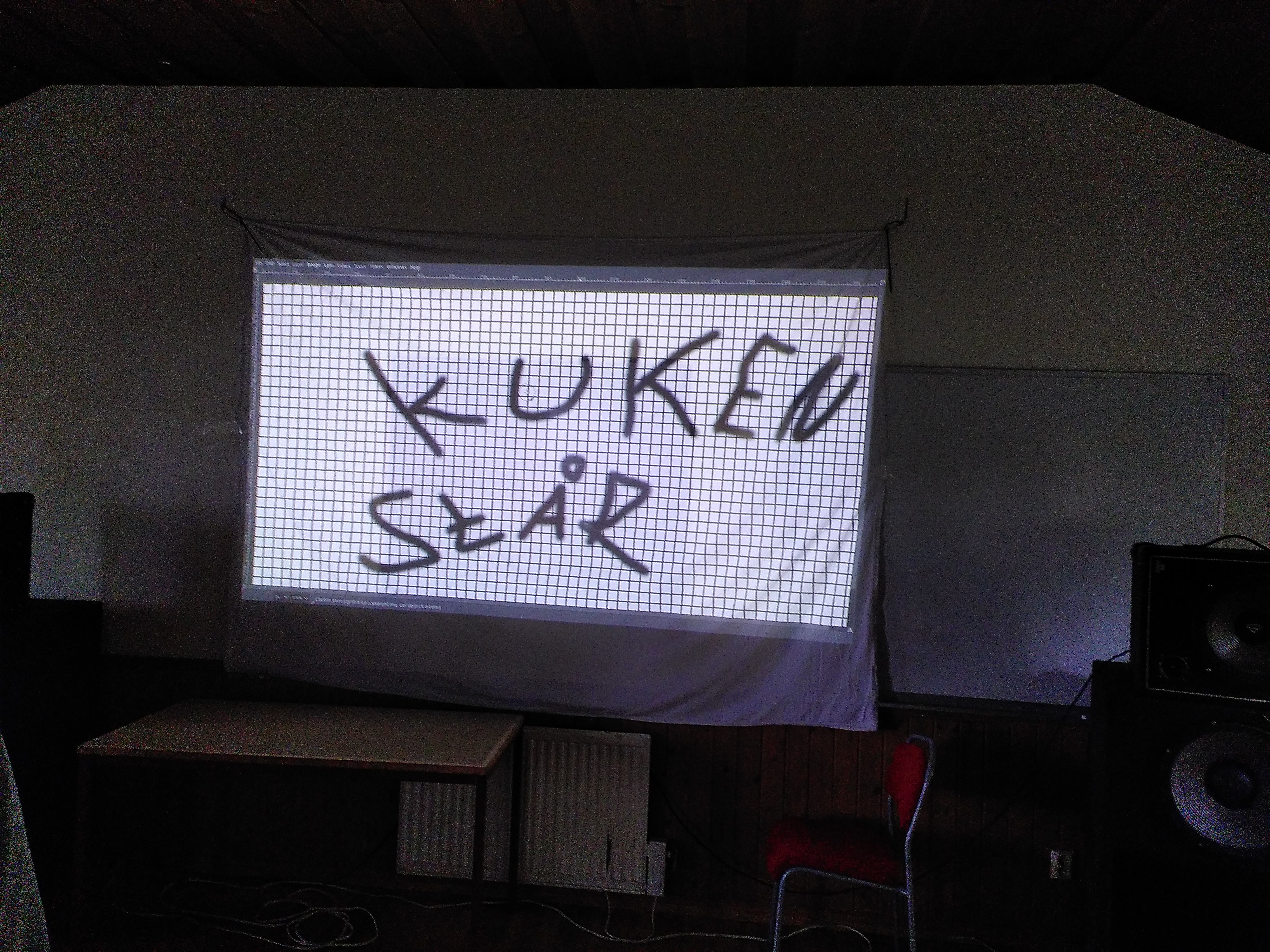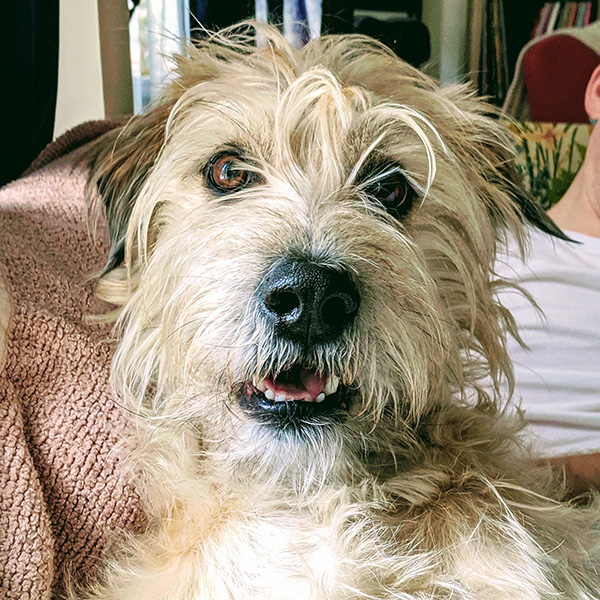Baby-talk is a universal human phenomenal and almost certainly plays an important role in helping kids learn language.
The implication that not using baby talk somehow unlocks rapid development of language is simply not true.
But it’s very funny to respond to babies babbling nonsense with “yes, I see, an intriguing point.”
Another good one is to suddenly look frightened and stammer out h-how could you know that".
This is why the baby stage is so fun and the teenage stage is so damn annoying.
You can always troll teenagers by using their words in slightly off contexts.
No way my parents did that accidentally!
This would drive teenage me crazy, fr fr on god.
No cap tho?
I’m a millennial with a gen z sister, can confirm it’s very swag.
that’s straight bussing, on cap, on cap, no god. super radical yo
Conversely, it’s also very funny to respond to self-important adults babbling nonsense with baby talk.
Kids perceive a lot more than we might think. I know my parents made lots of well-intentioned, passing comments that were nothing to them but stay with me decades later.
While I agree with you about the funniness, I worry that a kid might justifiably feel condescended to by that response and thus lose trust in the responder, an authority figure - especially if that figure is a parent, which is to say, a person they have to trust as an implicit safe figure.
I want my toddler to feel free to say anything to me, be it gibberish or a deep and well articulated philosophical point, and know that they won’t be mocked for it. That’s how they know it’s okay to explore and, if they wish to, share their thoughts. Even if their thoughts don’t make sense to me.
Teasing a kid isn’t inherently wrong, but even before they’re articulate, your response to their words - or gibberish - matters.
That stops being nonsense a lot faster than people think it does. Mothers commonly report knowing if the baby wants food, feels pain, or wants to be held very early. Then at about 6 months they’re trying to learn language, they’ll repeat sounds as best as they can. And at a year they’ll have their first word.
So, yeah a 6 month crawler should be getting full sentences but in baby tone.
Same with pets! I would have long “conversations” with my vocal cat…
There is a big difference between recoding “I am unable to do this currently because I am tied up with other work, ask me in a few hours” to “Daddy’s busy right now sweetie, maybe later?”
and
“Aww whosa sweet wittuh one! My wittle girlie so preshusss!”
I also really dislike this. Making simple noises is the kind of baby talk I can get behind. And then just using fewer words, simple words you want them to learn first. This and talking in higher pitched voices. I’m cool with all that baby talk.
But the latter feels like how parents with “fur babies” (who describe themselves as such) talk to their pets, and drives me up the wall.
Baby talk overemphasizes everything, including repetitions, that makes it easier for babies to actually get what you want and what all those cues are supposed to mean.
So yeah, kind of important, even though it sounds stupid.
That being said, there is a point at which kids should be taken seriously and communicated with accordingly. Some parents talk to relatively old kids like with toddlers and that can’t be healthy either.
Idk man. There’s this 3yr old girl that’s a child of one of our family’s friends. She’s pretty expressive with her vocabulary. Like i can have full blown conversations with this girl without dumbing much down, and i think that might be due to her parents’ pedanticalness.
Children pick up language at different rates. But also, while most kids learn words and build up, some learn to deploy whole chunks.
My cousin could say “Excuse me daddy could I please have a cookie?” at like 2 iirc. It sounds very advanced when you hear it, but she couldn’t, for example, replace ‘a cookie’ with ‘that’ or direct the request to me rather than her dad.
Once kids have learned more and more chunks they can sound very proficient, but it’s still just normal child language acquisition. Of course people gifted in language can happen too.
Also, no one is mentioning that there is still a significant amount of “translating” that has to happen. My kids all picked up language pretty quickly, but unless you are familiar enough with their specific pronunciation and vocabulary, it still sounds like baby talk to outsiders.
For example, last night when I got my 2yo out of the bath, he asked me for help putting on his favorite pajamas, if he could have a cookie, and asked to watch his favorite music video before bed, all in one sentence. But if you didn’t know he pronounces pajamas as “comfy cozies,” cookies are called “treat from under the stairs” and “hear wheelie rainbow neckshun” means watching Willie Nelson’s cover of “Rainbow Connection,” then of course it would sound like gibberish.
A baby’s babbling can express fairly sophisticated grammar and sentence structure if you meet them halfway. And frankly, making it clear that you can understand them expressing their ideas in their own words is highly valuable when it comes to raising healthy, confident kids.
That’s because she’s 3.
Baby talk is for babies.
I thought we were referring to toddlers as well. Oh well
wait, toddlers and babies are significantly different terms? i’ve been speaking english for decades and thought they were effectively just synonyms…
It’s a defined term(with variances of course), means between the age of 1 and 3. Weird definition though, really big difference between a 1 year old and a 3 years old child.
pedanticalness
pedanticness … OOOOOHHHHH!

Pedanticness is a noun that is considered obsolete and was only used in the mid-1600s.
I am only giving you a hard time bc (1) it’s funny, all the more so bc (2) you are the police of these matters! :-D
Pedanticness is a noun that is considered obsolete and was only used in the mid-1600s.
Erm, what can i say. I’m a connoisseur of the archaic.
I am only giving you a hard time because* (1) it’s funny, all the more so because (2) you are the police of these matters! :-D
You don’t wanna get on my bad side pal👮😎🔫
Oh no, I’m in trouble now!

you better watch out for the pedantry
I’ve had a similar experience and came to the same conclusion.
I like to answer questions as if an adult had asked them and then provide the dumbed down answer after.
It’s very common for 3 year olds to speak very fluently already. My 2 year old niece babbles a lot but actually makes oddly complex sentences already that makes me pause.
I think it’s both true that baby talk is good for infants and that people infantilize children for far longer than they should
Is it really universal though? I don’t recall that from my linguistics masters at all, in fact I think I recall pretty much the opposite…
I thought the universal part was the tone and cadence people use when talking to small children, and not the actual words or grammar changes.
It’s why you can listen to a recording of a language you don’t know and tell if they’re talking to a baby, but there are also cultures that essentially don’t talk to them at all until they have language.
I just wonder if it’s true. It’s certainly true for many indo-european languages, but I wonder if there’s been a typological study with a representative sample of languages done for it. I’m not sure I buy it being a language univeral.
https://www.cell.com/current-biology/fulltext/S0960-9822(17)31114-4?xid=PS_smithsonian
I know I’ve read a handful of things roughly a long these line, that basically it’s probably not universal that humans simplify language for infants, but that we likely do shift how we vocalize to them.
Seems like a reasonably plausible hypothesis to me.
우리 애기 너어어무 이쁘으찌이이이
우리 애기 너어어무 이쁘으찌이이이
Tillykke med dit smukke barn!
I’m fairly sure that studies have shown that even birds do baby talk but it’s been a while since i read that
I speak to my dog in complete sentences which was a mistake because now she knows every synonym for park, walk, treats, and any time we’re referring to her even if we just say ‘her,’ ‘it,’ or ‘the hound.’ She even learned that any time we spell a word it’s related to something she likes and she goes bonkers.
“They’re deliberately trying not to look like they’re talking about me!”
“They must be talking about me!”
We had a dog once that was super smart and would learn what different words meant very rapidly. I’d say with most dogs I’ve had, you can go most of their life and they’ll maybe learn 2-3 different words for “dinner” and you can use other words if you’re trying not to excite them too much. But this dog I swear near the end of her life we would have to say ridiculous things around her like “Did you put the K9 cereal in the receptacle?” because she had learned just about every other basic way to say “did you feed the dog?”.
It takes her only 2-3 repetitions to learn a new word, it’s wild. She’s super clever but also the doofiest dog I’ve ever seen, it’s hilarious
With dogs i think the inflection in your speech is what they pick up on more so than the actual word. Same goes for spelling something out. Next time try singing it
Not OP, but my dog will pick up on singing it too. ymmv because she’s very smart.
You’re supposed to use baby talk with them from about 15 years old and until they’re 18, to really piss them off.
The little shits have almost certainly done something to deserve it
This sounds like something from LinkedIn.
If someone’s toddler starts talking about how AI is a paradigm shift I’m going to dropkick it
At least the toddler has an excuse for parroting an idea that has virtually no semantic meaning to them-- That’s what toddlers do. The venture capitalists though…
😂😂😂
I have taught my kids to communicate with me solely via email, or via their lawyers.
The secret ingredient is unchecked alcoholism and rampant psychological abuse.
(/s, I don’t even have kids)
Denying their existence is totally on-brand
I have taught my kids to communicate with me entirely in Morse code via blinking.
It’s perfect as it’s nigh impossible to be interrupted, and back-talk doesn’t matter because they look too stupid to even get upset about.
We lived for three months in a brown paper bag in a septic tank. We used to have to get up at six o’clock in the morning, clean the bag, eat a crust of stale bread, go to work down mill for fourteen hours a day week in-week out. When we got home, out Dad would thrash us to sleep with his belt!
Well we had it tough. We used to have to get up out of the shoebox at twelve o’clock at night, and LICK the road clean with our tongues. We had half a handful of freezing cold gravel, worked twenty-four hours a day at the mill for fourpence every six years, and when we got home, our Dad would slice us in two with a bread knife.
I had to roll a boulder to the top of a mountain each day. And at the top, my liver would get eaten by an eagle. Afterwards the boulder would roll down and I had to start my work all over again.
But what do I know, I only see shadows on a cave wall.
luxury!
You try telling that to the young people today, and they won’t believe you!
Wow, you were lucky! I grew up only knowing one type of knife because that’s all my dad could afford. Imagine growing up in a house where the whole family had to share one knife for both bread and poop!
According to Alfred Matthew Yankovic:
There were seventy three of us living in a cardboard box.
All I got for Christmas was a lousy bag of rocks.
Every night for dinner, we had a big ol’ chunk of dirt.
If we were really good, we didn’t get dessert.
When I was your aaaaaaaage!
Oh wow, deep cut! I had that buried somewhere in the back of my brain.
We were so poor, we use to get grandad around to decorate our Christmas tree by sneezing snot onto it.
“Bit more on this side, grandad!”
You had a cardboard box?!
Luxury!
When I was young …
Luxury.
Here I am just crying back at my baby
You mean like? https://m.youtube.com/watch?v=NP7SfpcsVhE
Not sure why this triggered a snarky response unless Ted is just waving a monkey puppet for internet points. Talking normally to kids is not rocket science, and it’s not stereotypical yuppies desperate to get their gifted darlings into AP class. It’s very simple - little kids can handle normal speech just fine, so why use baby talk?
It really depends on the kid and the complexity of the message. Young kids are still learning the intricacies of the language and building a vocabulary. Not talking down to them helps build those skills up. But at the end of the day, if the message is not getting across, it’s the fault of the communicator.
Plus it’s an annoying flex to say “see how amazing my kid is? It’s all because of me!” Some kids just pick up language easier, some kids sleep all the way through the night earlier, some kids toilet train easier, etc. Usually it’s better for parents to quietly take the little victory rather than treat it as a reflection of their amazing parenting skills.
Exactly, there’s a difference between baby talk and using age reasonable vocabulary.
You don’t need to ask a 3 year old why they are being disobedient. But it’s perfectly reasonable to ask why they “aren’t doing what you asked them to do”.
Those are all different from why u no lissen bebe
Baby talk is garbage for communicating but it can be very funny for the baby and the parent.
regardless of a child’s inherent language skills I would argue that it’s a detriment to baby talk to them. surely the earlier they receive regular communication the sooner they are going to learn it.
I’m no expert, but I’m pretty sure, it’s not that simple.
For one, you might not have much to chat about with your baby, so doing baby talk might actually get in more language training.
But then baby talk is also very emotionally charged. So, it might help with emotional development, or simply make the baby pay attention for longer and therefore actually help the language development.
Well, and then it also still depends on the baby. For example, this research suggests that babies with autism react differently to baby talk: https://www.nimh.nih.gov/news/science-news/2022/toddlers-responses-to-baby-talk-linked-to-social-cognitive-language-abilities
For one, you might not have much to chat about with your baby, so doing baby talk might actually get in more language training.
In a good environment babies should be exposed to plenty of language. There’s tribal societies which don’t talk to their kids until they start to talk themselves and those kids turn out fine by all metrics researchers could throw at them. What they do do is take them with them everywhere.
You do not need to capture a baby’s attention for them to sponge up information. They do pretty much nothing else no matter what you do.
What has been shown to be beneficial is to give them the opportunity to talk to their caregivers earlier, figures that language capability develops faster than the capability to make complex sounds, it’s the whole point behind baby sign: So they can tell you that no they aren’t hungry they want their teddy. Doesn’t benefit language skills, it does reduce frustration (you might figure), bonds to their caregiver, and benefits both party’s emotional states.
Thats all well thought out and such but anyone with more than one kid will tell you that nature has a huge hand in it. You could treat the children the same and they can learn wildly different rates and have diverging interests.
This idea the parents take most of the responsibility for the achievements of their children is absurd. Its just as absurd as a head coach being praised for a victory in sports.
You don’t praise the guard rails in bumper bowling for the score at the end, thats the bowler. The guard rails just kept some of the worst outcomes from happening.
This idea the parents take most of the responsibility for the achievements of their children is absurd.
There’s also the flip-side of that attitude. It sure must feel nice for parents to be able to congratulate themselves when their kid excels, but what about when their kid has a disability or a developmental impairment? Who is responsible then?
It’s easy to be a parent when your kid acts and responds the way you want them to. Parents of neurodivergent kids can go above and beyond for their children, yet despite that they’ll still be given dirty looks and treated like pariahs when their overstimulated child has a public meltdown.
Kids aren’t raw lumps of clay that parents can mold to perfect shape. The best any parent can do is guide them toward success.
Coaches do have quite a large impact on teams, they’re the ones who study the opponent, formulate strategies, and then translate that into a training regimen.
In so far as being a kid is playing sportsball the coach is primarily the genome, then with some distance culture (takes a village and everything), and then the parents. You can praise a parent for having the wherewithal to introduce their kid to spaced repetition software, you can’t praise them for the kid feeling inclined to learn six languages before the age of 14 that was all the genome spotting a niche, adapting a suitable individual to serve a role by making it excited.
Yeah I don’t mean to imply that coaches or parents have no affect, just that they are commonly overstated.
Unless you happen to be the coach of my cities football (us) team, then that coach is a psycho and is single handedly responsible for losing last playoffs.
I guess thats sort of like a bad parent who tries to force stuff on their kids.
Can’t expect nerds to have the social intelligence to understand that.
Because there’s a ton of research that we adapted to do it for good reasons:
Infants between 6 and 8 months of age displayed a robust and distinct preference for speech with resonances specifying a vocal tract that is similar in size and length to their own. This finding, together with data indicating that this preference is not present in younger infants and appears to increase with age, suggests that nascent knowledge of the motor schema of the vocal tract may play a role in shaping this perceptual bias, lending support to current models of speech development.
Stanford psychologist Michael Frank and collaborators conducted the largest ever experimental study of baby talk and found that infants respond better to baby talk versus normal adult chatter.
TL;DR: Top parents are actually harming their kids’ developmental process by being snobs about it.
You can also just talk normally to your kids without being a snob about anything.
I avoid the baby talk with my nieces and nephews after they get past one year old. My oldest nephew said I’m his favorite because I don’t talk down to him
laughs in condescending to children at a level they just don’t comprehend
It’s one thing to use baby talk with an infant, (hence the baby talk moniker), and another to speak that way to a child that is actually learning to form words and construct a sentence.
Use whatever voice you prefer with your pets. Dogs actually enjoy the soft sounds of baby talk. A bit of brilliant manipulation of humans by the dogs.
i’m pretty sure baby talk came about in the first place because it works, it genuinely helps infants develop and as you say pets generally enjoy it, i think the high pitch is easier for them to hear?
I won’t argue with your thought. I’m certainly no accredited expert either, just a dad that, along with my wife, raise 4 daughters and pets - mostly working hunting dogs.
My take is that baby talk is impossible to do in a loud and angry voice. And is always done in a soft and gentle tone. I have noticed that when training dogs, I’m a fan of Spaniels, that if you are speaking in a loud voice and that has angry tones, they will start to separate from you and watch you closely. Because ain’t no one wants to get yelled at. It’s kind of similar to loud sharp barking I suppose. Cats though, are generally arse holes and just don’t care…
When our Daughters were newborns, they started to make just sounds after about a month. So baby talk was was pretty much just making intelligible sounds back at them in a soft and soothing tone. As they started to actually learn and use “real” words, less baby talk and far more normal speech is used by parents I think. But children are also smart enough to know the different between the baby talk when playing peek-a-boo with daddy and then need for normal speech at other times.
I certainly don’t see baby talk to infants and small children as an issue except in rare disfunctional family situations.
If you treat your kids like an adult they grow up to be one. We see plenty of example of people who are of legal age acting like children. Now you know why.
It definitely works. They’ll grow up way faster. Like they’ll be out of your life 15 YEARS faster!
When my toddler son hit his sister, instead of giving him a ‘talking to’ like the parinting book suggested, I just called the cops. Now he’s in federal prison all on his own! I’m so proud of him. 🥰
Two notes from my actual coursework in education and psych; first, baby talk exists for a reason but it’s the singasong voice that matters most, especially when they’re picking up sounds. The funny thing there is you can say absolutely terrible things in a singasong voice and they will love it and remember it better.
Second, the arse in the example isn’t actually all the way wrong, using vocabulary is important especially in that second and third year. I forget the author but there’s some studies that show preschool vocabulary is directly related to parental education and they found it’s because of the vocab the parents use. We’re taking tens of thousands more words learned. Too bad I can’t remember the author, just that it was four letters (and since leaving academia, my zotero is long gone).
You are correct. I majored in educational psychology and this language development in children has always been a special interest of mine.
Baby talk is like beacon to the baby, it tells them that “This is for YOU, pay attention!”. The baby hears and learns the intonations, patterns and the rhythms of the language. It’s importance cannot be downplayed.
A toddler can learn ~50 new words every day, so using normal speech is naturally important as well. But there is no need to try to overdo it. The mind of a small child is a massively powerful and superfocused “learning machine”, although it isn’t often apparent in their behaviour ;)
Reading to children is especially beneficial to language development. It enriches the vocabulary and introduces common patterns and rhythms of expression. And the pictures in books help to create connections between ideas and words.
The pace of language development is highly individual and forcing it is most likely useless. Children will learn what they can, at their own pace.
Every one of my own children were able to use polynomial sentences and past and future tenses before they were three. We never tried to accelerate their learning in any way, they just picked it up. On the other hand, my friend’s kid did the normal baby talk phase and then remained completely mute until the age of four. One day he just opened up and said to her mom in a clear voice: “Mom, could you give me some milk, I’m thirsty.” And he spoke normally ever since.
One advantage of quick language development is it’s effect on memory. A child that learns complex language skills early is more likely to form lasting memories of their early childhood. It may be that the memories can be stored more effectively and recalled more easily when the child is able to bind the experiences to words that can be used to express them.
This is a very fascinating subject.
Me, a chinese that only use one syllable word for my first 6 years: ._.
Ma?
I’d never really thought about until now, but do Chinese (specifically mandarin speaking) 3 year olds use Ma in place of the English speaking equivalent of “why” (repeated ad nauseum until the adult being questioned snaps!)?
Meh, Adam is obnoxious but correct
Correct but obviously exaggerating. I’d love to hear his not-quite-2-year-old daughter “using” 4-syllable words 🙄
I’m not a wordologist. Do words become harder to say when they’re longer? I mean, alalalalalong has 6 syllables.
Longer words are harder for children to get right.
But it’s so easy!
alalalalalonglonglilonglonglong
…damn, I messed up somewhere.
Bob Marley is that you?
This kid tries to repeat apple and banana
most people seem to be unable to pronounce anything longer than the word “pronounce”.
repeat after me kids! Supercallifragilisticexpiallidocious!
I mean, California, and other states, are 4 syllable words.
Can push California to 5 syllables if you really want to.
Are you attacking my cultural heritage of slurring words like a drunk ferret?
Yep. Maybe the sister’s named Elizabeth (and they obviously didn’t accept any nicknames)
Obnoxious, but also NOT correct. As another poster pointed out baby talk does serve a purpose in language development, and is a pretty universal part of child rearing. It’s not some recent cultural phenomenon that’s holding people bad from their full potential (or whatever BS this person is trying to imply). Using big words or skipping the baby talk stage doesn’t lead to more rapid or better development.
A better vocabulary is learned somewhere. Adopting an upbeat tone was always sufficient for me to hold toddlers attention.
The image conflates baby talk and vocabulary. Baby talk is the tone, not the words. So you did it correctly, good vocabulary with an upbeat tone.
very good, sounds legit. This may seem a on sequiter, but are you no longer farting in a maggoty way?
that was just, like, their opinion, man
As with most advice regarding early childhood development, your mileage may vary.




















